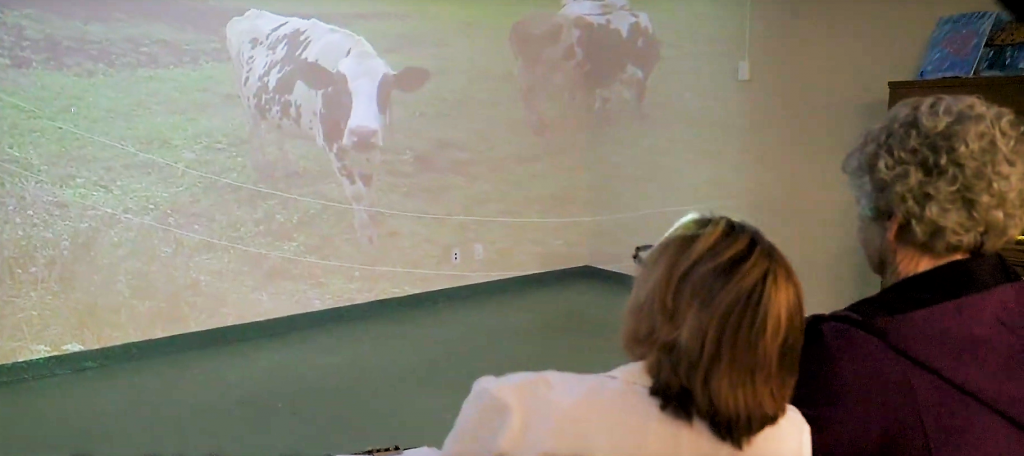The Albert Project™: VR to Reduce Anxiety in Long-Term Care Residents with Dementia Requiring MRI Tests

Award Date: 2018
Project Lead(s): Jill Knowlton
Project Title: The Albert Project – Improving Lives: A study on the impact of virtual reality cognitive therapy on long-term care residents with moderate to severe dementia
What is the issue?
Magnetic resonance imaging (MRI) is a valuable tool for assessing brain health. However, lying still in a noisy, contained space can cause anxiety for many people, including those with dementia, leading to poor image quality. Younger children typically require sedation to remain still for the duration of the test, but sedation increases costs and may exacerbate cognitive difficulties in older adults. Virtual reality (VR) may provide a sedation-free solution to conducting MRIs in seniors with dementia.
What did we do?
We gradually introduced individuals with moderate to severe dementia to the VR experience, with or without a headset. The goal was to see if we could direct them to a more positive emotional state. We conducted three studies, testing the feasibility and effectiveness of VR and whether it improved sleep and reduced depression in study participants.
What did we find?
VR therapy was feasible in long-term care homes in residents with moderate to severe dementia. It has the potential for reducing the need for sedation before MRI. All residents in our feasibility study had positive experiences using VR and were calmer, happier, and more cooperative. VR improved sleep and reduced depression in study participants.

